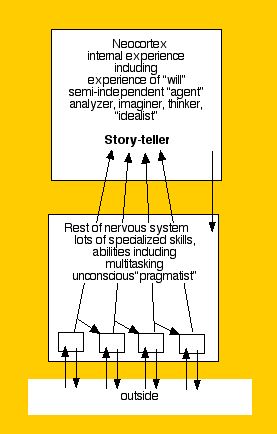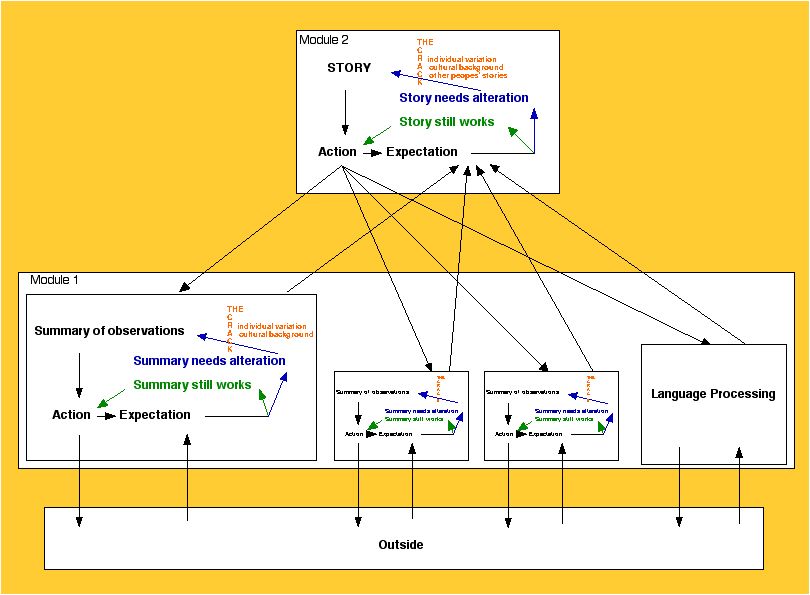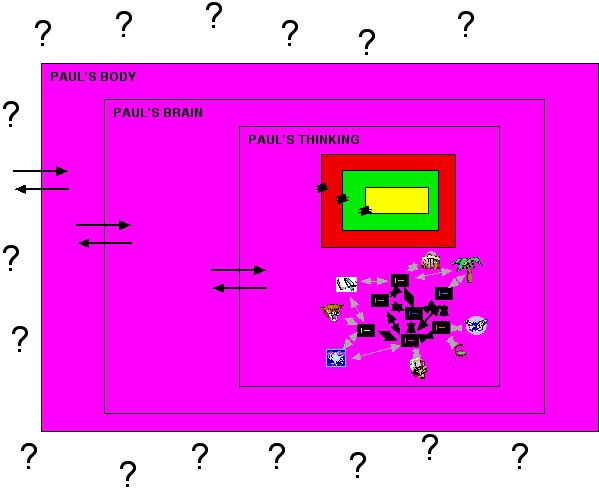The Brain and Science: Implications for Education
Before adding in bipartite architecture
- Every brain is different, needs to be approached differently
- Brains are active, not passive learners
- Brains create expectations, learn by comparing input to expectations
With recognition of story-telling
- "Truth", "reality" are conscious stories about diverse underlying unconscious understandings
- Conveying neither "Truth" nor "reality" is a good underpinning for science education, or education in general
- Both science education and education in general should pay at least equal attention to giving students the wherewithal to create new and useful "realities", to being meaningful participants in the ongoing creation of collective definitions of "reality"
- Classroom organization requires recognition of unconscious/conscious distinction, of learning at both levels, and of interplay between the two
- Unconscious learning can be valuable, is always operating
- Unconscious understandings need to be brought to the conscious level to be altered by conscious processing
- Reflective skills depend on an ability to make conscious/question what is unconsciously understood
- Students create distinctive stories that are valuable, and hence students are both students and teachers, for other students as well as teachers
- Teachers are freed to be both students and teachers
The most effective education requires the simultaneous and inter-related engagement of three interdependent "loops"
- outside/inside
- conscious/unconscious
- interpersonal
- The fundamenental business of science education, and of education generally, is "the continual enhancement of the ability of individuals to shape their own futures, to be casual and creative agents in their own lives, and to make distinctive and useful contributions to the lives of others"
and depends on
helping students learn to enhance the interplay of the unconscious and conscious in their own brains
The Bottom Line (on this story, and for the moment)
References and Resources
Metacognition and Self-Advocacy
| Introduction | Science | Brain: Basics | Brain: General Architecture | Brain: Bipartite | Implications | Metacognition | Science as Story Telling On-Line Forum |
Send us your comments at Serendip
 © by Serendip 1994-
- Last Modified:
Wednesday, 02-May-2018 11:47:55 CDT
© by Serendip 1994-
- Last Modified:
Wednesday, 02-May-2018 11:47:55 CDT




